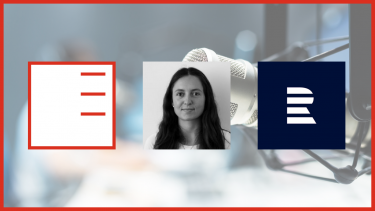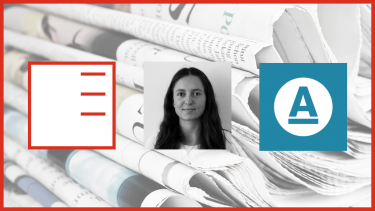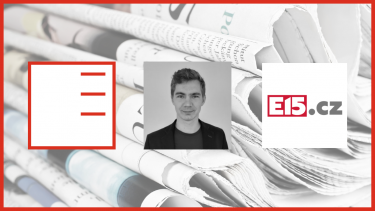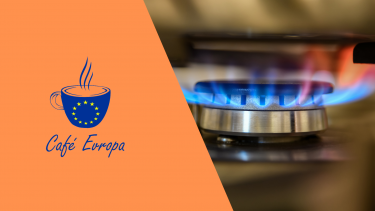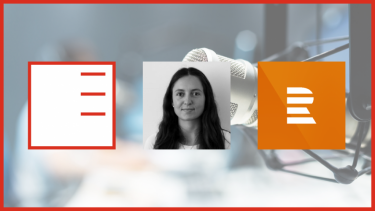ČRo Radio Wave: IPCC climate report: last chance to reverse disaster. Scientists are clearly running out of patience
Our researcher Kateřina Davidová was a guest on the Podhoubí podcast of Czech Radio. The podcast focuses on the latest IPCC climate report, which has sparked protests against the ineffectiveness of the fight against climate change even in the scientific community. According to Kateřina Davidová, there is a need to go the way of solar and wind energy while increasing the energy efficiency of buildings.
Show more
Aktuálně.cz: How to reduce dependence on Russia: Europe and others tackle gas, oil and coal cuts
Our researcher, Kateřina Davidová, commented for Aktuálně.cz on the latest package of sanctions against Russia by the European Union. According to her, the biggest impact on the Russian economy would be the restriction or ban on the purchase of mineral resources from the largest European customers or even from the whole European union. The best alternative to these energies would be to switch to renewable energy sources, says Kateřina Davidová.
Show more
E15.cz: Electromobility in the shadow of war - why to deal with raw materials now?
Our research fellow Michal Hrubý wrote an article for the news portal E15.cz about electromobility in the shadow of war. The article details to what extent the conflict in Ukraine has affected the energy market, what issues we need to focus on in the coming months and what should be the key to achieving so-called raw material security.
Show moreINVITATION: Café Evropa online: The future of European energy - how to ensure stable and clean energy sources without Russia?
We would like to invite you to the Café Evropa debate on 21 March at 17:30 on the topic "The future of European energy - how to ensure stable and clean energy sources without Russia?". The Russian invasion of Ukraine has, among other things, further fuelled the question of energy security in the Czech Republic and the EU and the future of energy in our country. The current security situation points to the need to diversify energy sources as soon as possible, i.e. to secure energy supplies from different regions and countries in order to avoid excessive dependence on Russia. There are also views in the public debate that coal extraction could be temporarily increased, which would enable some countries to cover any shortfalls in resources. Is a complete or even partial halt of Russian gas supplies to the Czech Republic and the European Union a realistic option? What impact would this have on our energy security? How much further increase in energy prices can we expect in this case? How should EU countries react and help households and industry cope with the expected increase? Could a possible temporary increase in coal extraction mean a return to fossil fuels and the end of the EU's climate ambitions? Or could the current problematic situation further accelerate the energy transition?
Show moreNavigating the Indo-Pacific: Dealing with Geopolitical and Security Shifts in the Region
We would like to invite you to the in person debate called "Navigating the Indo-Pacific: Dealing with Geopolitical and Security Shifts in the Region" which will be held at EUROPEUM Institute for European Policy, Staroměstké náměstí 4/1, Prague (Room "Minuta") on Friday, March 18 at 15:00.
Show more
Report: EU – Pacific Talks: H2 – Hydrogen Hype
David Plhák wrote a report from the EU - Pacific Talks debate on: H2 - Hydrogen Hype. The debate outlined the current state of the hydrogen economy and its role in the EU, Czech Republic and Japan's efforts to achieve climate neutrality and reduce energy dependence on hydrogen.
Show more PDFINVITATION: EU-Pacific Talks: H2 - Hydrogen Hype
We would like to invite you to the final debate in the EU-PACIFIC Talks series. The debate will take place online on Thursday 17 March at 10:00 and will be broadcasted on our Facebook page.
Show more
Policy Brief: Responding to China's connectivity agenda in EU's Neighborhood: a Central European perspective
A Policy Brief on the appropriate response of Central European countries to China's expansion in the EU neighbourhood was produced during a study visit to the Brussels office of the Think Visegrad platform. The author of the paper, Jakub Jakóbowski, focuses on the possibilities of engaging Central Europe in the EU's global connectivity agenda, implemented under the Global Gateway initiative. He highlights links with the Western Balkans and the Eastern Partnership as an indispensable element of Central European connectivity.
Show morePolicy Paper: Time to Redefine the Terms and Conditions of the Transatlantic Relationship? – 2021 Transatlantic Policy Forum in Review
On November 18-19, 2021, the fourth edition of the Transatlantic Policy Forum took place. It was hosted by EUROPEUM Institute for European Policy in partnership with the German Marshall Fund of the United States and the International Republican Institute (IRI), supported by the International Visegrad Fund, Friedrich Naumann Foundation, and the Ministry of Foreign Affairs of the Czech Republic. The aim of this Policy Paper is to provide a summary and analysis of the discussions that took place, while respecting the Chatham House rule and thus preserving the anonymity of the participants. This analysis aims to highlight and elaborate on the main findings of the participants.
Show more
Čro Plus: Priorities of the French Presidency and meeting with the V4
What can the upcoming French Presidency of the Council of the European Union mean for the Czech Republic, especially given that it will be immediately followed by the Czech Presidency? Can it be assumed that France and the V4 countries will converge on energy issues and move away from, for example, Germany, which is striving for nuclear-free and carbon-free energy? Does nuclear energy have the potential to become green energy for the French? How do France and the V4 countries need or not need Nord Stream 2? These and other questions were answered by analyst Kateřina Davidová on Czech Radio.
Show more
Staroměstské náměstí 4/1
Prague 1 - Staré Město
110 00
tel.: +420 212 246 552
email: europeum@europeum.org
https://www.europeum.org
